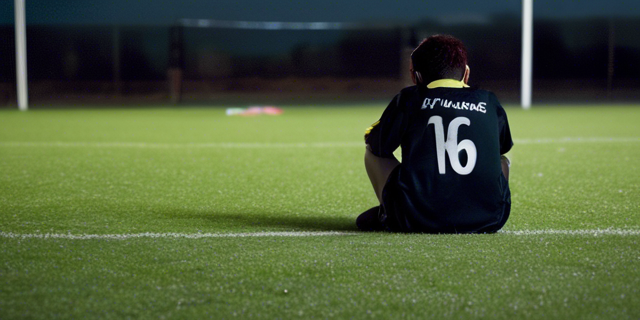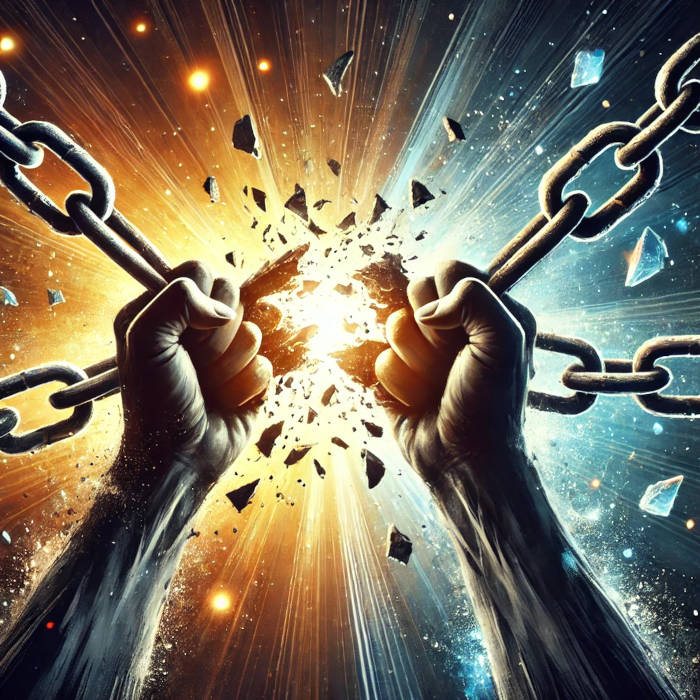How Narcissistic Abuse Taught Me to Feel Guilty for Being Hurt

Releasing Guilt from Narcissistic Abuse: How I Healed from Childhood Trauma
There’s a moment in my life I keep coming back to. A moment that, for years, I thought was just an isolated incident—until I realized it was a symptom of something much bigger.
I was 12 years old, standing on the soccer field at my new school, just trying to fit in. I barely knew anyone. I was just a kid, playing a game, when suddenly—bam! A fist landed square on my nose.
The boy who hit me didn’t apologize. He didn’t act like he had done anything wrong. Instead, he leaned in and whispered:
“Don’t tell anyone, or I’ll get in trouble.”
And you know what I did?
I stayed quiet. I didn’t fight back. I didn’t tell a teacher. I didn’t even tell my friends.
Instead, I felt something strange, something I couldn’t quite understand at the time.
I felt guilty—as if I had done something wrong.
But why? Why did I feel guilt and shame over being the one who was punched?
It wasn’t until years later, after digging deep into my own trauma and working through the wounds left by narcissistic abuse, that I understood:
I had been conditioned to believe that when bad things happened, it was my fault.

Growing Up Under Narcissistic Abuse
You see, I grew up with a narcissistic parent—my father. If you’ve ever lived with a narcissist, you know exactly how it works. They don’t just control you; they control your reality.
In my house, if something bad happened, I was the one to blame.
- If my dad was in a bad mood? My fault.
- If he exploded in anger? My fault.
- If I cried or disagreed? I was “too sensitive” or “disrespectful.”
There was never any accountability on his end. If he did something cruel, it was because I had provoked him. If I was hurt, it was because I had done something wrong.
So, when I stood on that soccer field, holding my nose in shock after being punched, my mind followed the script it had been programmed to follow:
➡ Something bad happened.
➡ It must be my fault.
If you want to read more then visit my article about narcissistic abuse on children and the negative effects, it’s intense but it shows the reality of what survivors must overcome to get back their lives.
Why I Froze Instead of Fighting Back
A lot of people think that when faced with danger, we either fight or run. But there’s a third response—one that’s just as powerful but far less understood: freezing.
Freezing happens when your nervous system decides that fighting or fleeing isn’t safe. And in that moment, I didn’t fight back because, deep down, I believed that standing up for myself would only make things worse.
Where did that belief come from? My dad.
At home, whenever I tried to defend myself, I was punished. If I raised my voice, I was met with rage. If I pushed back, I was humiliated.
My subconscious had learned that staying silent was the safest option.
And that’s exactly what I did on that soccer field.
Seeking Comfort, Finding More Shame
After school that day, I couldn’t shake the feeling of guilt and shame. I felt like I had failed in some way, but I didn’t know why.
And that’s when another strange thing happened: I felt a deep, almost compulsive need to tell my dad what had happened.
Now, you’d think that a child would avoid telling an abusive parent about something like this. After all, I knew how he’d react. But trauma bonding is complicated.
I wasn’t telling my dad because I expected comfort. I was telling him because I needed the punishment to get it over with.
That was the pattern I knew:
1️⃣ Something bad happens.
2️⃣ I get blamed and punished.
3️⃣ I feel relieved because now it’s “dealt with.”
So, I told my dad about the punch. And just as I expected, he got mad. He yelled at me. He made me feel even more ashamed.
And weirdly? I felt relief.
It was like I had completed the cycle my brain had been conditioned to follow.

Breaking Free From the Guilt
It took me decades to unlearn that cycle. Decades to realize that I wasn’t responsible for the punch. I wasn’t responsible for my dad’s anger. I wasn’t responsible for other people’s bad behavior.
If you grew up under narcissistic abuse, you might have had similar experiences. Maybe you were made to feel guilty for things that weren’t your fault. Maybe you still carry that guilt into adulthood, feeling responsible for other people’s emotions, afraid to stand up for yourself, afraid to take up space.
So, how do you break free?
3 Steps to Releasing the Guilt from Narcissistic Abuse
1. Recognize That the Guilt Isn’t Yours
If you were trained to take the blame for everything, you probably still do it—even when you don’t realize it. Start questioning those feelings.
- “Is this really my fault?”
- “Would I blame someone else for this same situation?”
Most of the time, the answer will be no.
2. Reparent Yourself with Compassion
Imagine your younger self standing in front of you, feeling the same guilt and shame. What would you tell them?
For me, I had to go back to my 12-year-old self and say:
“You didn’t deserve that punch. You didn’t do anything wrong. You froze because you were protecting yourself. You are not responsible for other people’s cruelty. You are worthy of kindness and safety.”
Try this with your own childhood memories. Visualize yourself giving your younger self the validation they never received.
3. Create a New Empowering Belief
The best way to rewrite an old belief is to replace it with a new one. Here’s what I’ve learned to tell myself:
🌟 I am not responsible for bad things that are beyond my control.
🌟 I am now safe to stand up for myself.
Repeating this daily, especially in moments where old guilt creeps in, helps rewire the brain.

Final Thoughts
The day I was punched on the soccer field wasn’t just about schoolyard bullying. It was a mirror reflecting the deeper wounds I had carried from narcissistic abuse.
I froze because I had been trained to freeze.
I felt guilt because I had been trained to feel guilty.
I sought punishment because I had been trained to believe that’s how things worked.
But now, I see the truth. I was never to blame.
If you’ve lived through narcissistic abuse, I want you to know:
You don’t have to carry their guilt anymore.
You don’t have to live by their rules anymore.
You are free.
And that’s a truth worth fighting for. 💙